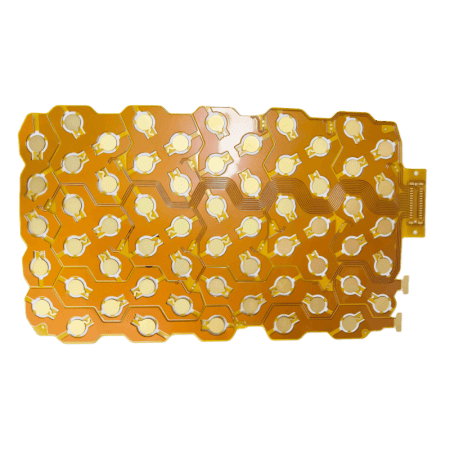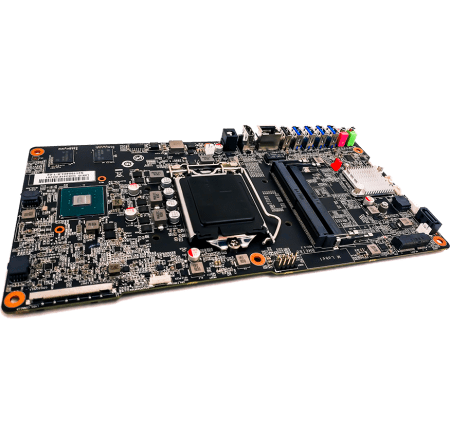- +86-755-23012705
- Building 3, Jinfeng Industrial Park, Fuyong Street, Baoan District, Shenzhen ,China
- [email protected]
In today’s interconnected world, global supply chains are the backbone of industries across the board, and the Printed Circuit Board Assembly (PCBA) sector is no exception. With the increasing demand for electronic devices, the global supply chain for PCBA manufacturing has become more intricate and expansive than ever before. While these global networks offer significant advantages in terms of cost efficiency, access to specialized materials, and flexibility, they also introduce a range of challenges that can directly impact production costs. In this blog, we’ll explore the complexity of global supply chains in PCBA manufacturing and examine how this complexity influences the cost structure of PCBAs.
The process of designing, sourcing, and assembling printed circuit boards (PCBs) involves numerous steps and materials sourced from different parts of the world. PCBA manufacturers rely on a range of suppliers for everything from base materials like copper and glass fiber, to specialized components such as resistors, capacitors, and connectors. Additionally, the assembly process often requires highly skilled labor, which may be located in various regions with different wage structures.
Global supply chains allow manufacturers to source materials and components from countries that offer cost advantages due to lower labor costs or abundant raw materials. For instance, many PCBs are designed in North America or Europe, but the majority of the manufacturing—especially the assembly—takes place in countries like China, Taiwan, or Malaysia, where labor is cheaper, and factories are well-established. By leveraging these global networks, PCBA manufacturers can reduce production costs and offer competitive pricing to their customers.

One of the key factors driving the complexity of global PCBA supply chains is the procurement of raw materials. The prices of materials such as copper, gold, and silver—used in the manufacture of PCBs—are subject to fluctuations in the global commodities market. These fluctuations can be influenced by geopolitical instability, trade wars, and supply chain disruptions, which can increase the cost of sourcing these materials.
For example, the price of copper, a critical material in PCB manufacturing, is heavily influenced by global demand in sectors like construction and transportation. A spike in demand from one of these sectors can drive up copper prices, which in turn raises the cost of manufacturing PCBs. Similarly, precious metals like gold and silver, used in connectors and surface finishes, can also become more expensive depending on market conditions and trade policies.
This volatility in raw material costs can be a challenge for PCBA manufacturers, as they may struggle to predict and manage these fluctuations. Often, manufacturers will hedge against these price increases through long-term contracts or by diversifying their supply sources, but even then, material costs can have a significant impact on overall PCBA costs.
The complexity of global supply chains is further compounded by the logistics and transportation challenges involved in moving materials and finished products across borders. Lead times for international shipping can be lengthy, with components and materials often taking weeks or even months to arrive at manufacturing plants. Any delays, whether due to weather conditions, port congestion, or transportation strikes, can disrupt production schedules and delay the delivery of final products.
Moreover, transportation costs themselves are affected by global factors such as rising fuel prices, labor shortages, or changes in shipping regulations. For example, the COVID-19 pandemic caused significant disruptions in global shipping, with container shortages and port backlogs leading to soaring shipping costs and delays. These disruptions can directly impact PCBA manufacturers, driving up production costs due to longer lead times and higher logistics expenses.
In some cases, manufacturers may attempt to mitigate these risks by diversifying their supply chain partners, sourcing from multiple suppliers or manufacturing in different regions to reduce dependency on any single source. However, managing a more complex, multi-regional supply chain can lead to additional costs in terms of coordination, communication, and inventory management.

Labor is another major factor influencing PCBA manufacturing costs. While many components and raw materials are sourced globally, assembly and production often require specialized skills that may not be readily available in every region. Many companies have moved their assembly operations to countries where labor costs are lower, such as China, Vietnam, and Malaysia. However, this comes with the challenge of maintaining consistent quality and managing the workforce in regions with varying labor laws, cultural differences, and labor standards.
Wage disparities between countries can also create challenges in cost management. As labor costs rise in previously low-wage countries, manufacturers may find it more cost-effective to shift production to other regions, creating a constant cycle of adaptation to changing economic conditions.
In addition, the increasing complexity of PCBA designs—driven by the demand for smaller, faster, and more feature-rich electronics—requires highly skilled labor to handle advanced assembly techniques. Finding workers with the necessary expertise in these areas can be difficult in regions with limited access to specialized training, and this can add to the cost of PCBA manufacturing.
Geopolitical instability and changing trade policies are significant risks to global supply chains. Tariffs, import/export restrictions, and changing trade agreements can increase the cost of both raw materials and finished goods. For example, the ongoing trade tensions between the U.S. and China have had a significant impact on the PCBA industry, as tariffs were imposed on a range of components and materials used in electronics manufacturing.
These tariffs and trade policies can disrupt the flow of materials and increase the overall cost of manufacturing, especially for companies that rely heavily on specific regions for their raw materials or assembly services. In some cases, manufacturers may try to mitigate these risks by shifting production to alternative countries or diversifying their supplier base, but this can be costly and time-consuming.
While the complexity of global supply chains presents several challenges for PCBA manufacturers, there are several strategies that companies can adopt to mitigate the impact on costs:
Supply Chain Diversification: By sourcing materials and components from multiple suppliers across different regions, manufacturers can reduce their dependency on any single source and minimize the risk of supply chain disruptions.
Advanced Supply Chain Management Tools: Investing in supply chain management software and tools that provide real-time tracking and forecasting can help manufacturers optimize their procurement and logistics processes, reducing lead times and minimizing the risk of stockouts.
Localizing Production: In some cases, manufacturers are considering reshoring or nearshoring production to reduce reliance on international supply chains. While this may involve higher labor costs, it can lead to reduced transportation costs, shorter lead times, and more reliable supply chains.

The complexity of global supply chains plays a crucial role in determining the cost structure of PCBA manufacturing. While global sourcing offers significant cost advantages, it also exposes manufacturers to a variety of risks—ranging from raw material price volatility to transportation delays and geopolitical instability.
To remain competitive in this complex landscape, PCBA manufacturers must adopt strategies that mitigate these risks while optimizing their supply chains for cost efficiency, speed, and reliability. By carefully navigating the challenges of a globalized supply chain, companies can maintain profitability while delivering high-quality, cost-effective products to the market.
Discover a World of Possibilities with XPCB Limited
At XPCB Limited, we’re here to help you explore new horizons. Our advanced PCB manufacturing, rapid prototyping, and turnkey PCBA solutions make it easy for you to turn your ideas into reality. Trust us to deliver excellence and reliability every step of the way. Join us and experience the power of innovation with XPCB Limited by your side.






XPCB Limited is a premium PCB & PCBA manufacturer based in China.
We specialize in multilayer flexible circuits, rigid-flex PCB, HDI PCB, and Rogers PCB.
Quick-turn PCB prototyping is our specialty. Demanding project is our advantage.
Tel : +86-136-3163-3671
Fax : +86-755-2301 2705
Email : [email protected]
© 2024 - XPCB Limited All Right Reserve
